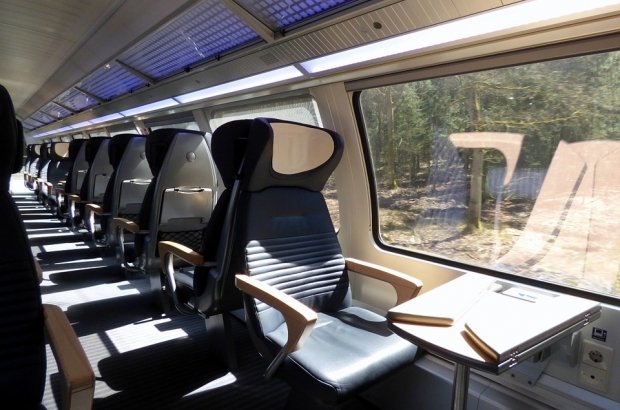- Daily & Weekly newsletters
- Buy & download The Bulletin
- Comment on our articles
'Blow to the industry': Major SNCB train contract goes to Spain
Belgian railway operator SNCB’s board of directors has confirmed its choice of Spanish company CAF over Siemens and Alstom for a multi-billion-euro contract to supply new trains as part of the railway company's fleet renewal programme.
Unions and critics are calling the move a "blow to the industry".
“With this decision, SNCB has effectively signed the death warrant for the Alstom factory in Bruges,” said MP Farah Jacquet (PTB).
This 12-year framework contract is worth an estimated €1.7 to €3.4 billion and is part of a programme aimed at renewing up to 600 trains by 2034. The first phase involves the order of 180 trains for a total of €1.7 billion.
SNCB said that the order was "necessary to meet the commitments set out in the public service contract".
Spokesperson Tom Guillaume specified that the new rolling stock will "replace ageing rolling stock. This means more comfortable, more accessible and more sustainable trains".
The order also includes battery-powered trains to eventually replace the current diesel multiple units.
“These trains must offer all the necessary comfort for passengers, including independent access for people with reduced mobility, quiet areas, information screens, connectivity and sufficient space for bicycles,” the railway company said in a statement.
SNCB had already chosen CAF for the contract back in February, but the decision was suspended by the Council of State because it had not been taken in a sufficiently transparent manner.
Alstom Benelux, which employs some 3,000 people in Belgium, including more than 600 in Bruges (formerly Bombardier), was also in the running for the major contract, but the Belgian subsidiary of the French group was not selected, nor was German manufacturer Siemens.
The SNCB board of directors confirmed CAF as the preferred bidder "on the basis of a decision that takes into account the ruling of the Council of State".
It said the bids submitted by the three bidders "each mention the use of local service providers" and that SNCB is therefore inviting the preferred bidder to expand on this option.
The board of directors also instructed management, as part of the ongoing discussions with the preferred bidder with a view to the final award decision, to request confirmation from CAF that its activities comply with international law and human rights.
Federal mobility minister Jean-Luc Crucke (Les Engagés) said: “I take note of this independent decision, which complies with European rules, and I now expect SNCB to translate it into a concrete, ambitious and structuring industrial project for the Belgian railways.”
The minister reiterated the "considerable" challenge of delivering the first train by 2029 in order to accelerate the modernisation of the network, meet growing demand and improve the passenger experience.
“The deadlines, quality and legal certainty are non-negotiable,” Crucke said. "Any delay would undermine our strategic objective of increasing the modal share of rail to 30% by 2032."
Unions warned of the risk that the Bruges site would have to close if Alstom did not win the contract.
“We are disappointed by this decision and will now take the time to assess the consequences for Alstom and the options available to us,” the company said in an initial reaction.
In addition to the workers employed by Alstom, there are also a myriad of subcontractors who are likely to be affected, according to the unions.
They point out that the site has been firmly established in the local community for several decades, dating back to the creation of the company La Brugeoise et Nivelles (BN) in 1956.
More broadly, unions are calling for a debate on public procurement legislation and consider it "more than normal" for a country to prioritise employment and production on its own soil, something that they believe Belgium is not doing enough.
A number of Belgian politicians also criticised SNCB’s choice.
MR president Georges-Louis Bouchez said on social media that it was "clearly an anti-Alstom decision, as the differentiating factors are ridiculously minimal and unfounded – this is a decision by the management and a board of directors, a significant part of which has failed to assume its responsibilities".
The PTB party said that it "strongly condemns" the board's decision and is calling for Minister Crucke to appear before parliament to answer questions.



















